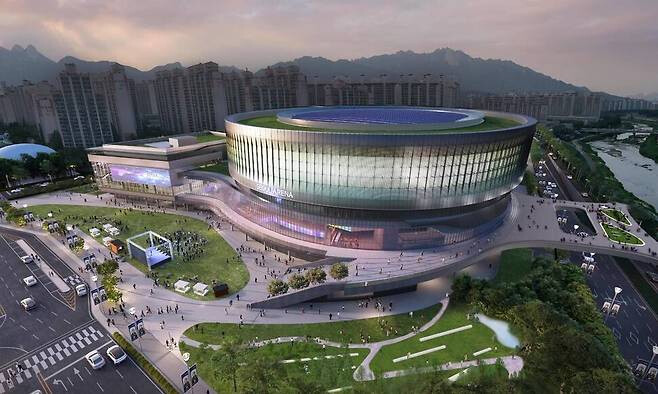
Seoul, South Korea – As K-pop continues to sweep the globe, propelling South Korea's cultural influence to new heights, the industry is facing a pressing issue: a severe shortage of performance venues. Despite the industry's explosive growth, with annual revenue exceeding 12 trillion won ($8.7 billion) last year, the lack of adequate spaces for concerts and events is hindering further expansion.
"Booking a venue in December is like winning the lottery. It's already fully booked six months in advance," said a concert industry insider, highlighting the intense competition for performance spaces.
The situation is particularly acute in Seoul, where the largest indoor venue, KSPO Dome (formerly known as Jamsil Indoor Stadium), is often overbooked months in advance. Even securing a spot at this venue requires a rigorous application process and a substantial upfront payment.
The closure of the Seoul Olympic Stadium for renovations in 2023 has exacerbated the problem. This stadium, along with its adjacent auxiliary stadium, could accommodate up to 70,000 people, making it a prime venue for large-scale concerts. With these venues off-limits, smaller arenas and convention centers are now struggling to meet the demand.
"The shortage of large-scale performance venues is causing a chain reaction," said Ko Ki-ho, vice president of the Korea Popular Music Performance Industry Association. "When major venues like the Seoul Olympic Stadium are unavailable, smaller venues become overburdened."
As a result, international pop stars and domestic K-pop acts are being forced to either perform in smaller venues multiple times or postpone their tours. This not only impacts the artists but also limits fan experiences and tourism revenue.
The situation is expected to worsen in the coming years as the demand for K-pop concerts continues to grow. The completion of the Seoul Arena in 2027 and the uncertain future of CJ Live City are unlikely to provide immediate relief.
Experts argue that the government needs to take urgent action to address this issue. This includes exploring alternative venues such as riverside parks, university outdoor theaters, and sports facilities, as well as easing regulations to facilitate the development of new performance spaces.
"The government needs to recognize the importance of the performance industry and provide the necessary support to address the shortage of venues," said Hong Seok-kyung, a professor of media studies at Seoul National University. "The lack of adequate venues is a serious obstacle to the sustainable growth of the K-pop industry."
As K-pop continues to dominate the global music scene, the industry's growth is being hindered by a lack of infrastructure. With the right support from the government, South Korea can overcome this challenge and further solidify its position as a global leader in music and entertainment.
[Copyright (c) Global Economic Times. All Rights Reserved.]






























